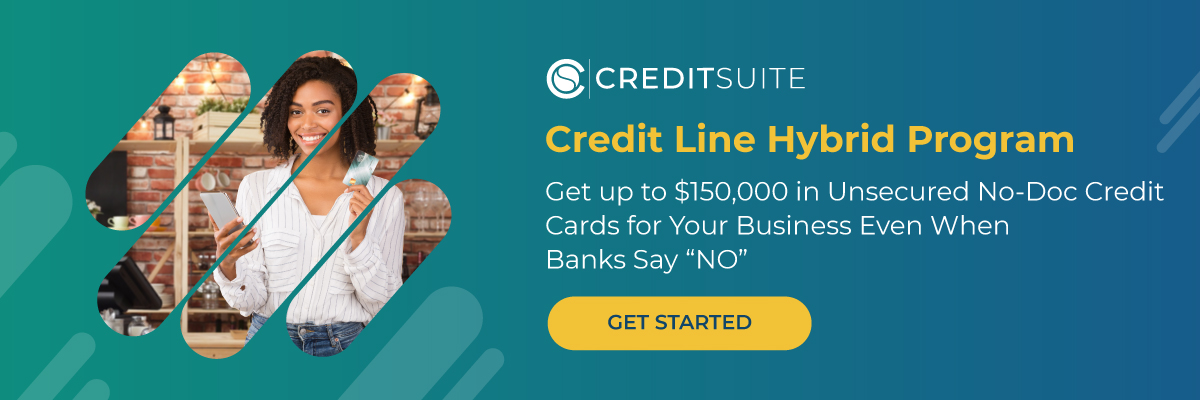Are you trying to start a business and wondering how to get a startup business loan? Maybe you think you don’t qualify. Maybe you have been trying but keep getting denied. These tips, including one that almost no one knows about, will help you obtain the funds you need to get your business off the ground.
How to Qualify for a Startup Business Loan No Matter What
Usually, to get a traditional business loan you need good credit, strong cash flow, and collateral. If you are a startup, you may not have cash flow yet. You may have good personal credit, which can help, but it’s unlikely that you have established business credit. Honestly, you may have collateral, or you may not.
However, there are some loan options you can qualify for with just one of these three things.
5.What Are Your Options for a Startup Business Loan?
Tip number one for how to get a startup business loan is to know your options. This is the hardest part. It can be easy to get overwhelmed when you start looking at loan requirements. Most traditional loan options require collateral, cash, and good credit even if you are a startup.
The first step in knowing how to get a startup business loan is understanding what your options are based on your specific qualifications. Here are a few ideas to get you started.
Options for Small Business Startup Loans if You Have Collateral
If you are looking for a straight business startup loan, collateral-based loans are going to be the easiest to get. You use your assets as security. As a result, rates are lower, and your personal credit doesn’t have as much of an impact. Of course, collateral can be anything. Still, here are some outside-of-the-box ideas you may not have considered.
Securities-Based Financing
For example, you can use stocks as security to get business financing. In fact, you can borrow as much as 90% of their value. Furthermore, you continue to earn interest on the stocks even as they are pledged as collateral.
401(k) Financing
Your existing 401(k) or IRA can help fund your business as well. This is a unique funding tool known by the IRS as a Rollover for Business Startups, or ROBS. There are no tax penalties, and you still earn interest on your 401(k).
Equipment Financing
Equipment financing is a great way for a startup to get financing to buy or lease new equipment. Use your first and last month’s payments to get approved. However, rates vary widely based on risk factors. The lender will undervalue equipment by perhaps up to 50%. Also, this only works for major equipment. Lenders won’t combine a lot of small equipment.
SBA Loans for Startups
There are a few different SBA programs that can work for startups that have collateral.
7(a) Loans
The Small Business Administration’s 7(a) loan program offers federally funded term loans up to $5 million. Generally, these loans can be used for expansion, purchasing equipment, working capital and more. Banks, credit unions, and other specialized institutions process these loans and disburse the funds.
504 Loans
In addition, 504 loans are available up to $5 million. These funds can buy machinery, facilities, or land. Typically, they are used for expansion, and they work especially well for commercial real estate purchases.
Microloans
In contrast, microloan amounts are smaller, only going up to $50,000. Use them to start a business, purchase equipment, buy inventory, or for working capital. Community based non-profits administer microloan programs as intermediaries, with financing coming directly from the Small Business Administration. Banks do not handle these loans. As a result, many entrepreneurs do not even know they exist.
How to Get a Startup Business Loan Without Collateral?
What if you do not have collateral. In the absence of cash flow or good credit, how can you get the funds you need?
You may have to use a guarantor. Simply put, a guarantor is someone who signs the loan with you and agrees to repay the debt if you do not. While traditional guarantor loans are fine, there is an even better option. In fact, with this little known-option for business funding, you can get funds up to $150,000 with 0% interest for up to 18-months!
The best part is, you either need good personal credit (above 700) or a guarantor, not both!
The Credit Line Hybrid allows you to fund your business with no collateral and typically very low interest rates. No financials are required. You can usually get up to $150,000. You do not have to use a guarantor, but you do need a 700+ credit score to qualify without one.
4. Learn How to Set Your Business Up the Right Way
Have you ever heard the term “fundability?” Fundability refers to a business’s current ability to get financing. For a business to be fundable, it has to have a fundable foundation. This means the way you set up your business is a big piece of how to get a startup business loan.
A fundable foundation includes:
- Separate business contact information
- EIN
- Incorporating
- A D-U-N-S Number
- Dedicated business bank account
- A professional business website with an email address that shares the URL
Infographic
The foundation includes only a fraction of the over 100 factors that affect the fundability of a business. However, none of it matters without the foundation.
3. Do Not Underestimate Business Plan Importance
You need a strong business plan that will grab the attention of the lender. They need to see what you plan to do with the money. They need to know you have a strategy, that you’ve done your market research, and that you have some skin in the game.
Many business loan applications are denied because the business plan is poorly put together or non-existent.
2. Don’t Ignore Your Business Credit Score
Many business owners either do not know that there is such a thing as a separate business credit score, or they grossly misunderstand it. Your business credit score reflects the creditworthiness of your business separate from you as the owner. Unlike personal credit, it does not build passively. You have to be intentional about building business credit.
The first step is building the fundable foundation. That will establish your business credit profile. Then, you have to get accounts reporting your payments to that profile before you will start to build a business credit score.
That is easier said than done, because unlike consumer credit where pretty much all accounts report your payment history, only about 7% of accounts that use business credit to make approval decisions will report payment history to your business credit profile.
There are a few ways to get accounts reporting. One of them is the Credit Line Hybrid.
1. Secret Expert Tip…
This tip for how to get a startup business loan is one that very few people know about and even fewer talk about. The best way to get a startup business loan, or any business loan for that matter, is to work with a business credit expert.
How can a business credit expert help? First, they can help you find the funding you need right now. But more than that, they can analyze the current fundability of your business and your business credit profile, and walk you through the steps necessary to establish or improve.
Since there are over 100 factors that can impact fundability, this is a huge timesaver. Not only that, but it is helpful to ensure you don’t miss anything. They know what they are doing.
Now that You Know How to Get a Startup Business Loan, Here’s What to Do Next
Why not start at the top and get things off to the best start possible? A free consultation with a business credit expert can point you in the right direction. With an expert guiding you the entire way, you’ll save both time and money, and you will know without a doubt that you are on the right track.



